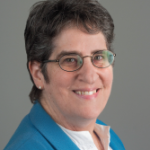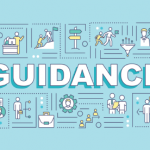As an epidemiologist with expertise in classification criteria and outcome measures for rheumatic diseases, as well as novel methodologies to address issues relevant to rheumatic diseases, Tuhina Neogi, MD, PhD, chief of rheumatology, Boston Medical Center, and professor of medicine and of epidemiology, Boston University Schools of Medicine and Public Health, is well positioned to take over the helm of the ACR Committee on Quality of Care (QOC). She has previously helped lead the development of new classification criteria, outcome measures and treatment guidelines for rheumatic diseases. In 2014, she received the ACR Henry Kunkel Young Investigator Award for outstanding and promising independent contributions to research.
In this Q&A, Dr. Neogi talked to The Rheumatologist (TR) about the QOC’s work and her plans and goals for leading the committee’s efforts over the next three years.
TR: What is the Committee on Quality of Care?

Dr. Neogi
Dr. Neogi: The QOC oversees ACR activities related to criteria, clinical practice guidelines, guidance documents and quality measures. Stated another way, the QOC works with teams of researchers, clinicians and methodologists to define different rheumatic diseases, put forth recommendations about ideal clinical care of people with those diseases, and provide ways to measure whether the best care is being given. QOC members or designees also participate in non-ACR activities where these things are being done.
TR: What are your plans and goals for the Committee over the next year or two?
Dr. Neogi: The Committee underwent a significant reorganization in 2015 and since then has been very prolific, with 40 publications. Now it’s time to step back and conduct a thoughtful reevaluation—one that was planned for 2020 but postponed due to COVID-19—of where we’ve been and where we want to go next. That will be our focus over the next year or so, even as we continue to work on ongoing projects. This is an exciting time to be part of the QOC, helping shape the vision and focus of the important work done by the ACR.
TR: How did you get involved with the committee, and how did this lead to your becoming chair?
Dr. Neogi: Soon after I became a member of the Criteria Subcommittee of the QOC in 2008, the ACR and EULAR embarked on developing new classification criteria for rheumatoid arthritis, and I was asked to join the team. This work resulted in the 2010 classification criteria, in which we implemented novel methodology. The methodological expertise I gained through this experience led to involvement in other ACR criteria projects, such as the gout classification criteria published in 2015, chairing the ACR’s Criteria Subcommittee (2012–15) and my initial term as a QOC member. I then became involved in ACR guideline work—gout, osteoarthritis—and helped develop quality measures, such as for gout. As I grew in my ACR QOC experience, including several leadership positions, I also gained leadership experience elsewhere in my professional life. After a several-year hiatus from the QOC, I rejoined the committee and then became chair.
TR: On a more personal note, how did you get into rheumatology as a career?
Dr. Neogi: I ultimately chose rheumatology because of the multi-system nature of the variety of diseases rheumatologists care for and the interesting and diverse pathophysiology of those diseases. This specialty requires being skilled in the physical exam of the whole body, not just a single organ. One also has to be somewhat of a detective, searching for clues in the history, physical exam and labs to try to solve the puzzle.
Another important factor in my choosing rheumatology was the experiences I had as a medical student and resident, and the influence of great faculty that swayed me to choose rheumatology as a specialty. I’m a prime example of why it’s so important to ensure that early-stage trainees get adequate exposure to rheumatology.
My clinical practice is still an open practice, meaning I see all-comers. However, I do receive specific referrals due to recognition of my research expertise in gout and osteoarthritis. When I first started out as a clinical fellow and in my early research fellowship period, I thought I would become a vasculitis specialist, and that was what I did for the first few years of my practice. However, as my research evolved, so too did my clinical practice. I often cite this change in my focus to encourage fellows to keep an open mind and not get too tied to a single path early on in training.
TR: What motivates your involvement in the ACR, and what would you say to your colleagues about its rewards and challenges?
Dr. Neogi: The ACR annual meetings have been a fundamental influence on my career. I submitted my first abstract as a fellow, which was selected for an oral abstract presentation—my first-ever talk in front of such a large audience! I was hooked. The large poster hall was such an amazing experience, and I was inspired by the breadth and quality of research and took pride in presenting my posters. I loved meeting the leaders in rheumatology from all around the world and felt like I was meeting Hollywood/rock stars when I got to meet rheumatologists whose names I had read in papers. Some of those individuals became mentors, sponsors and champions of my career from afar over the years.
My involvement in ACR activities stemmed from those interactions at the annual meetings, when a mentor/sponsor from afar recommended me for the Criteria Subcommittee of the QOC. Involvement in that committee and subsequent committees allowed me to gain insights into the broad spectrum of important work the ACR does to support rheumatology, rheumatologists and members of the interprofessional rheumatology team. It is very rewarding being involved in this work. The one main challenge with involvement is time. All of the amazing rheumatologists and interprofessionals who serve on ACR committees are volunteers. Everyone has more-than-full-time jobs, so volunteering time on top of that can be difficult. I have tried to align my interests, passions and research skills with the types of committee work I volunteer for to make the volunteer work enjoyable and complementary to my skills.
Mary Beth Nierengarten is a freelance medical journalist based in Minneapolis.


